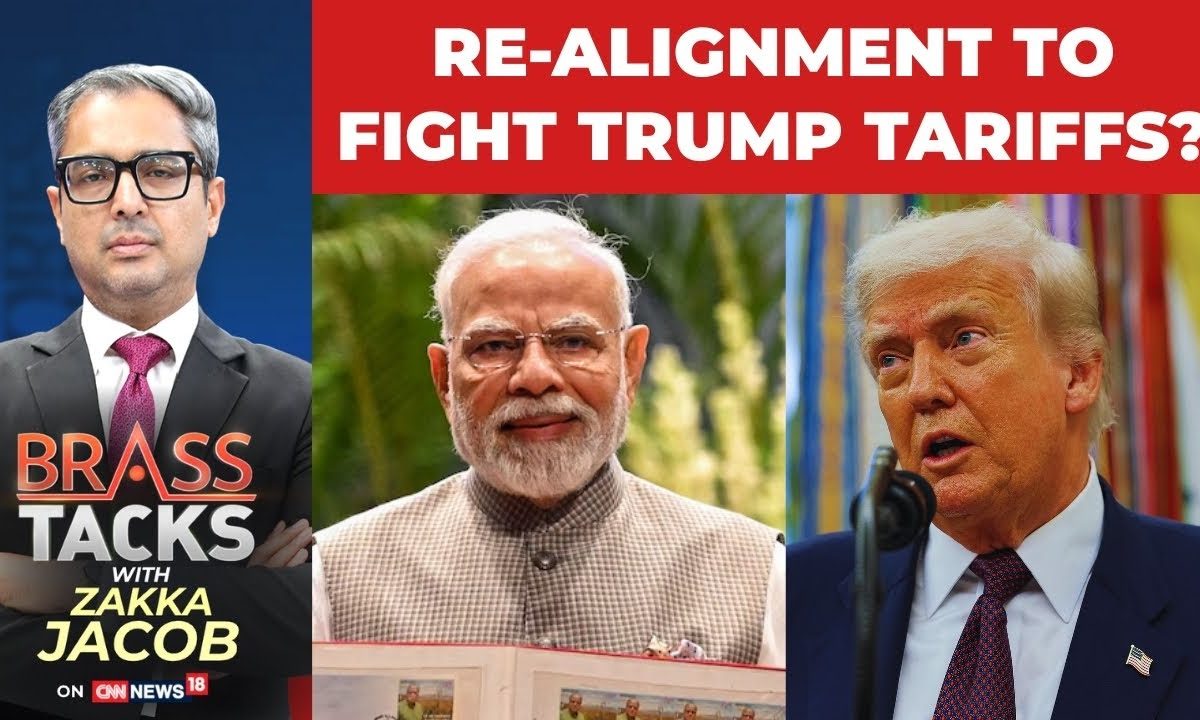Trump Tariffs War: Time for Strategic Resilience
International International NewsPosted by AI on 2025-08-26 17:43:23 | Last Updated by AI on 2025-08-26 20:51:24
Share: Facebook | Twitter | Whatsapp | Linkedin Visits: 0

Indian Prime Minister Narendra Modi's recent push for self-reliance is a timely and effective strategy in response to the 50% tariffs on Indian imports levied by the United States. Furthermore, India is also planning to leverage its rich mineral resources to reduce its reliance on China for rare earths.
The news of the past few weeks has rattled exporters in India. With the US levying a 50% tariff on Indian imports, mainly on gems and textiles, it has sent a chilling effect on their export market. But, as they say, adversity is a great catalyst for innovation. And this situation might be the right time for Modi's imperative push for self-reliance.
Prime Minister Modi emphasized the need for self-reliance and critical mineral resource development through the National Critical Mineral Mission. The program aims to reduce India's reliance on China, the dominant player in rare earths production, used in technology and defense.
The challenging global trade environment underscores the need for countries like India to enhance their resilience through domestic capability building and diversification of supply chains. With the right policies and strategic investments in infrastructure, R&D, and skills development, India can chart a course toward more robust economic growth and self-reliance.
It's a challenging time for India, but with vision and strong leadership, they are poised to come out stronger than ever.
Search
Categories
- Sports
- Business
- History
- Politics
- International
- Science & Technology
- Social Issues
- Disaster Management
- Current Affairs
- Education
- Startup Business
- Startup News
- Awards
- Community Services
- Fundraising Events
- Volunteer Services
- Health Initiatives
- Innovations and Initiatives
- In News
- Banners
- Awards
- Partners
- Products
- Press Releases
- News
- Fast Check
- South
- సినిమా
- Gallery
- Sunday Chronicle
- Hyderabad Chronicle
- లైఫ్ స్టైల్
- National
- క్రైం
- ట్రెండింగ్
- జాబ్స్
- అంతర్జాతీయo
- బిజినెస్
- రాజకీయం
- బిజినెస్
- సంపాదకీయం
- నవ్య
- చిత్ర జ్యోతి
- క్రీడలు
- జాతీయం
- తెలంగాణ
- తాజా వార్తలు
- మన పార్టీ
- మన నాయకత్వం
- మన విజయాలు
- డౌన్లోడ్స్
- మీడియా వనరులు
- కార్యకర్తలు
- North East Skill Center News
- Government Schemes
- Entrepreneurship Support
- Employment Opportunities
- Skill Training Programs
- Departments
- Investments
- Initiatives
- Resources
- Telangana IT Parks
- Events & Jobs
- Press Releases
- News
- Airport News
- Newtons Laws of Motion
- Karbonn in Business
- Investments in Karbonn
- Company quarterly sales
- Markets
- Auto News
- Industry
- Money
- Advertisements
- Stock target
- Company Updates
- Stock Market
- Company Sales
- Staffing and HR
- Constituency Assembly
- General News
- Srikalahasti Temple
- Bojjala Sudhir Reddy
- Technology & Innovation
- Sports
- Business
- Products
- Industries
- Services & Trainings
- Tools & Resources
- Technology Integration
- Drug Seizures & Arrests
- Telangana Narcotics
- Law & Enforcement
- Rehabilitation
- Nationwide Drug Policing
- Nigeria Seizures
- Global Operations
- Drug Awareness
- Drug Enforcement Tech
- NCB Drug Seizures
- Judicial Crackdown
- India's Surveillance Tools
- Cross-Border Links
- Women Safety
- Cyber Crimes
- Drug Abuse
- Traffic & Road Safety
- Community Connect
- Public Safety Alerts
- Citizen Assistance
- Nellore City News
- Politics & Administration
- Events & Festivals
- Agriculture & Rural
- Business & Economy
- Health & Wellness
Recent News
- Smart Cities, Smarter People?
- Smart Cities, Safer Markets: Civic Chief's Swift Action
- Rare Daily Homam Makes Ayyappa Temple in Nellore Special to Lord Ganesha
- Sure! Here is a revised version of the article in a captivating, magazine-style format:
- TD Party Chaos in Nellore District
- Rising Drug Abuse: Four Held with 6 kg Ganja in Nellore District
- Here is a draft of a news article based on the information provided in the brief, with the title "Local Market Trend For Toyota Innova Crysta Diesel Cars":
- Nigerian Nationals Arrested for Drug Racket